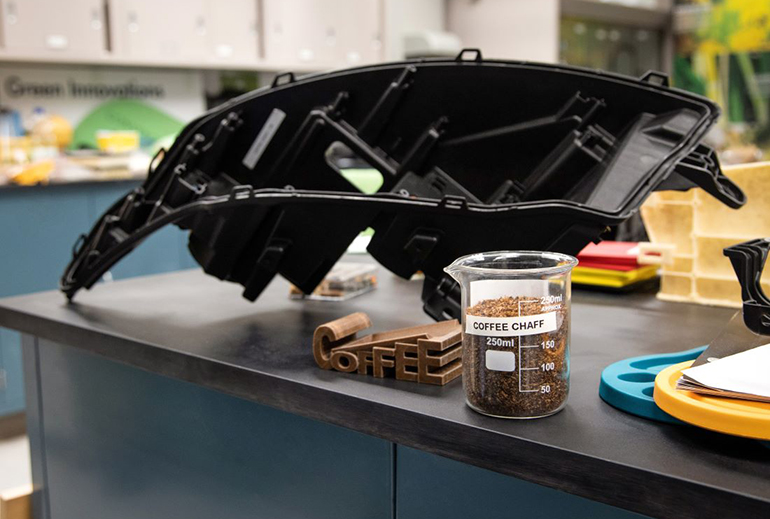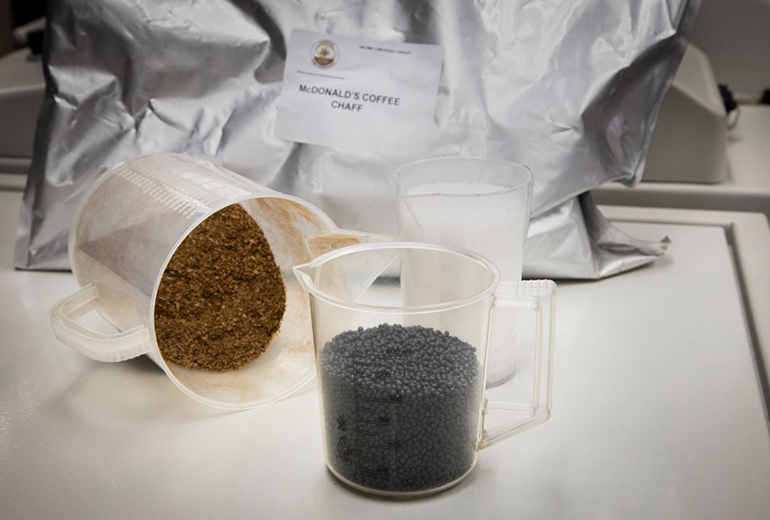Consumers buying a new Lincoln Continental in 2020 can thank a cup of coffee at McDonald’s for the improved fuel efficiency of the Ford luxury vehicle.
On Wednesday, McDonald’s and Ford Motor Company said they are joining forces to turn McDonald’s coffee bean waste into vehicle parts. Specifically, headlamp parts from Lincoln cars coming off the assembly line later this month will be made with chaff, skin waste created after roasting coffee beans.

The Chicago-based quick-service chain, who is working with Starbucks to fast-track the creation of a compostable cup, said the coffee bean project is part of a long-term commitment to find secondary uses for waste materials.
“This is just the starting point for us. That’s why we are excited about it,” said Ian Olson, senior director of global sustainability at McDonald’s.
Olson said the partnership with Ford, his former employer, started more than a year ago. The automaker’s emerging materials research team reached out to McDonald’s Corp., at that time, to discuss turning chaff into vehicle parts.
“I was blown away,” Olson said.

McDonald’s jumped on board as the project aligned with the company’s global green efforts, or Scale for Good initiative.
Olson said the chaff for this project is coming from McDonald’s North American coffee supplier, Mother Parkers Tea & Coffee Inc. in Canada. Chaff is normally turned into garden mulch or charcoal, according to the two companies.
McDonald’s did not disclose the volume of chaff being used by Ford, only calling it a “a significant portion of its coffee chaff in North America.”
Debbie Mielewski, senior technical leader of materials sustainability at Ford, said the company’s Research and Innovation Center is always looking to “upcycle” materials that minimize impact to the planet.
Over the years, her team has turned rice hulls into electrical brackets and used soy beans to create foam cushions for car seats.
“We’ve had quite bit of experience with this,” Mielewski said. “The circular economy is something everyone should be thinking about.”

Ian Olson (left), senior director of global sustainability at McDonald’s, and Debbie Mielewski (right), senior technical leader of materials sustainability at Ford.
But this is the first time Ford has worked with coffee bean skins, which can be converted into a durable material to reinforce certain types of vehicle parts. Ford is working with two suppliers: headlamp maker Varroc Lighting Systems and Competitive Green Technologies, the processor of the coffee chaff.
In the Lincoln, she said the chaff is replacing talc, a super dense material used for the back end of a headlamp. The chaff-created vehicle part, or headlamp housing, is about 20% lighter and has a higher heat performance, she said.
That makes the car more fuel efficient.
Ford and McDonald’s hope to expand the use of chaff, and other waste resources, to create parts for other car lines.
“I think this is the future of sustainability,” Olson said.
Contact Nancy Luna at [email protected]
Follow her on Twitter: @fastfoodmaven





